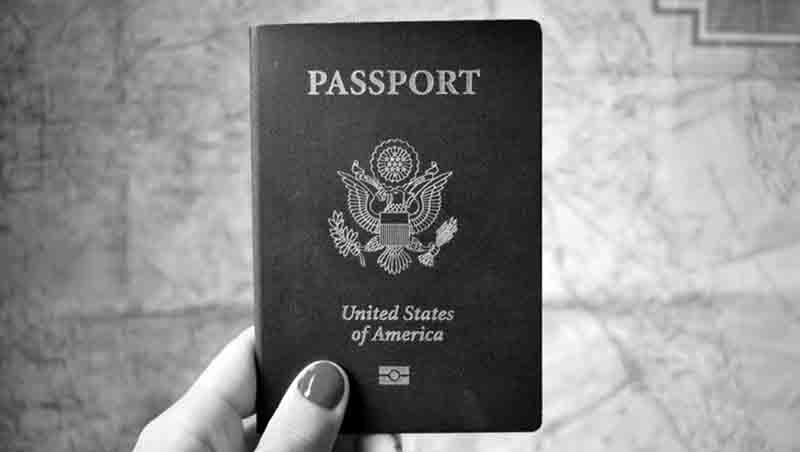Tanzania Travel Advisory – US Bureau of Consular Affairs Insight
Mission
THE IMPLICATIONS OF SECURITY: The US Bureau of Consular Affairs primary duty is to protect the lives and interests of American citizens abroad. This is made possible by the emergency services offered to American citizens at US embassies and consulates worldwide. During the most challenging times, the Bureau lends a helping hand to those in the community. Immigrant and consular policies are developed and implemented by the Bureau of Consular Affairs. There is a US Bureau of Consular Affairs in Tanzania coupled with the Travel Advisory for Tanzania.
When it comes to presenting the Department of State’s face to the world, Consular Affairs (C.A.) is the agency to call. Among other things (apart from providing the US Travel Advisory Tanzania service), C.A. is responsible for caring for and protecting American nationals abroad, issuing passports and other travel papers to individuals and nations, and safeguarding the United States’ border security. Aside from the 29 U.S. Passport bureaus and centers, 26 of which deal with the American people, C.A. has a substantial domestic presence. These consular activities raise legal, humanitarian, and administrative issues, which have far-reaching consequences for foreign diplomacy and domestic politics. These responsibilities fall on the Assistant Secretary of State for Consular Affairs. However, they are carried out by consular officers stationed at embassies and consulates worldwide such as in Tanzania where there is the Tanzania Travel Advisory. Because of its size and reliance on consular fees, the C.A. is the Department’s most heavily staffed domestic office. C.A. generated $4.16 billion in revenue in 2015, comparing the affluence of 600 companies.
United States of America Passports
To travel beyond the United States to countries like Tanzania, you need a passport issued by the United States. Traveling or temporarily staying in a country’s territory and receiving legitimate local aid and protection are only some of the benefits of a U.S. passport application. If you need assistance when traveling to Tanzania, you can use the State Department Travel Advisory Tanzania Africa service. It allows you to return to the United States, being the most crucial benefit.
Citizens of the United States who wish to go outside the country can obtain a passport through the Department of State. For the sake of national security, the Department of State protects the United States Passport’s integrity both domestically and internationally.
The following are included in the Department of State passport services:
- The region has 26 public passport offices and institutes.
- The Charleston Passport Agency (not open to the public)
- 1 Special Issuing Agency
- There are two passport printing facilities in the area.
- The United States Department of State’s Passport Information Center
- Passport applications can be submitted at any one of thousands of public locations across the country.
- H.Q. in Washington, DC
Residents of the United States can also obtain a passport by applying for one of Department of State overseas embassies or consulates. Also, you can reach out to the Tanzania Travel Advisory in case you are in the country.

A Look at Passport Statistics
You can check out the Department of State Passport Statistics website for further information on the following:
- New passports are printed
- Put into circulation every year,
- State and territory-issued passports around the world.
What is Passport Services’ Mission?
Customers should expect nothing less than the most outstanding levels of customer service, professionalism, and honesty from the Department of State when issuing travel documents to citizens of the United States.
Expectations in Terms of the Quality of the Service
- With civility and professionalism, service to customers,
- Put in place are endeavors to accomplish your urgent travel prerequisite.
- If you are not pleased with the service you received, you have the prerogative to speak with management about your concerns.
Visa
Office of Visa Services is part of the Consular Affairs Bureau and conducts the following functions:
- For the Department of Homeland Security, the office serves as an intermediary.
- Office of Visa Services serves as an intermediary for the Department of State and U.S. embassies and consulates worldwide regarding visa issues.
- Office of Visa Services is well-versed in visa policies and regulations and share its knowledge with others.
Contacting the Department of Homeland Security (DHS), or contacting the Department of State (DOS)
Differentiating between the duties of DHS and DOS can be a tricky task. The following information may be of assistance:
DOS: If you have any questions concerning U.S. visas, including how to apply, where your visa is in the process, or why it was denied, you can contact the State Department through a US Embassy or Consulate abroad.
Consultation services and public inquiries can often provide information about the application procedure and the status of individual cases if they have been held up by bureaucracy.
DHS: Contact information for the Department of Homeland Security (DHS) can be found at this location: Immigrant and nonimmigrant petitions, work permits, extensions of stay, and status changes in the United States are all handled by the Department of Homeland Security, which is also responsible for deportation. If you have any questions, you should contact DHS, the United States Citizenship and Immigration Services (USCIS).
Traveling Internationally
What the State Department Been Doing over the Years
The State Department’s first responsibility is to ensure the safety of American citizens when they are away from home, which is one of the purposes of the Travel Advisory to Tanzania. U.S. Embassies and Consulates in Tanzania and all over the world provide emergency and non-emergency assistance to citizens of the United States traveling abroad.
In the case of an arrest, destitution, death, medical emergency, or crisis when traveling outside of the United States, the State Department will be available to help. The State Department also responds to inquiries regarding the well-being of individuals and their whereabouts and questions about their nationality and citizenship. If you are travelling to Tanzania, you may want to check in with the Tanzania Travel Advisory.
Also, take a look at:
International Adoption

Children’s Issues (CI), a division in the Bureau of Consular Affairs at the U.S. Department of State, is involved in intercountry adoptions. Helping families care for orphans throughout the world is very serious.
As the United States central authority under the Hague Adoption Convention, the division’s role is to carry out the tasks delegated to us by the State Department. The Hague Adoption Convention is overseen and implemented by the Office of Children‘s Issues daily in the United States.
The Office of Children’s Issues’ Purpose
Children’s Issues (CI), a division in the Bureau of Consular Affairs at the U.S. Department of State, is involved in intercountry adoptions. Helping families care for orphans throughout the world is very serious and also paramount according to Tanzania Travel Advisory.
For the Hague Convention on the Protection of Children and Cooperation in Respect of International Adoption, Children’s Issues serves as the United States’ Central Authority. Nearly 90 nations, including the United States, have ratified the Hague Adoption Convention, also known as the Hague Adoption Convention. The Convention’s day-to-day implementation in the United States is overseen by the Office of Children’s Issues.
A total of 21 of Children’s Issues full-time staff members are dedicated solely to foreign adoptions. The following are some of its most important responsibilities:
- International adoption data that is specific to each country;
- Notifying potential adoptive parents of country-specific events via Adoption Notices and Adoption Alerts;
- Promoting adoption awareness among prospective adoptive parents, professionals involved in the field, and members of Congress;
- Diplomatic outreach to foreign governments to educate them about adoption laws and processes; and collaboration with U.S. embassies
- Investigate complaints against Hague-accredited adoption service providers and monitor the functioning of specific accreditation authorities.
Abductions for Parental Child Internationally
Based on the Tanzania Travel Advisory, ensuring the safety and well-being of American citizens abroad, particularly children, is the top priority of the Department of State. The organization’s firm belief is that a court in the country where a child’s habitual residency lies has the best tools for making decisions about custody and access.
Department of State Purpose
The Hague Abduction Convention (Convention) provides a civil remedy for parents who kidnap their children and take them away from home countries. U.S. government efforts to prevent international parental kidnapping, help those affected, and promote the Convention’s principles are coordinated by the Office of Children’s Issues within the Department of State and federal agencies.
If You Think You’re, or Someone is Being Kidnapped Right Now:
The Office of Children’s Issues can be reached at 888-407-4747 at any time if you believe your child has been kidnapped abroad by a member of your family but has not yet left the country.
When a child is kidnapped abroad, Office of Children’s Issues will be there for you:
- Information on resources that may assist in obtaining your child’s return or access,
- Give you a list of attorneys in the country where your child lives practicing family law.
- Assist local and federal law enforcement with queries about the Department’s role in international parental child abduction cases
- Convention applications must be completed by parents whose children have been kidnapped or detained in a Convention partner country, regardless of their children’s citizenship or legal status.
The following is not something Office of Children’s Issues can do in the event of an international kidnapping:
- Making recommendations, giving legal advice, or representing you in court is not what the division can do for you.
- Make sure your child is returned to you or has access to you.
- Granting your child’s custody.
- Violating of any law, whether domestic or international,
- Pay your lawyer’s fees, court costs, and any other costs associated with the legal process, or
- Getting you a place to stay is all off-limit to things the division can do for you in these scenarios.
Other Important Travel Advisory Tanzania Services to Consider
- CDC travel advisory tanzania – Centers for Disease Control and Prevention
- The Canadian Version Travel Advisory for Tanzania – Tanzania Travel Advisory Canada
For more articles related to Tourism in Tanzania, click here!

































